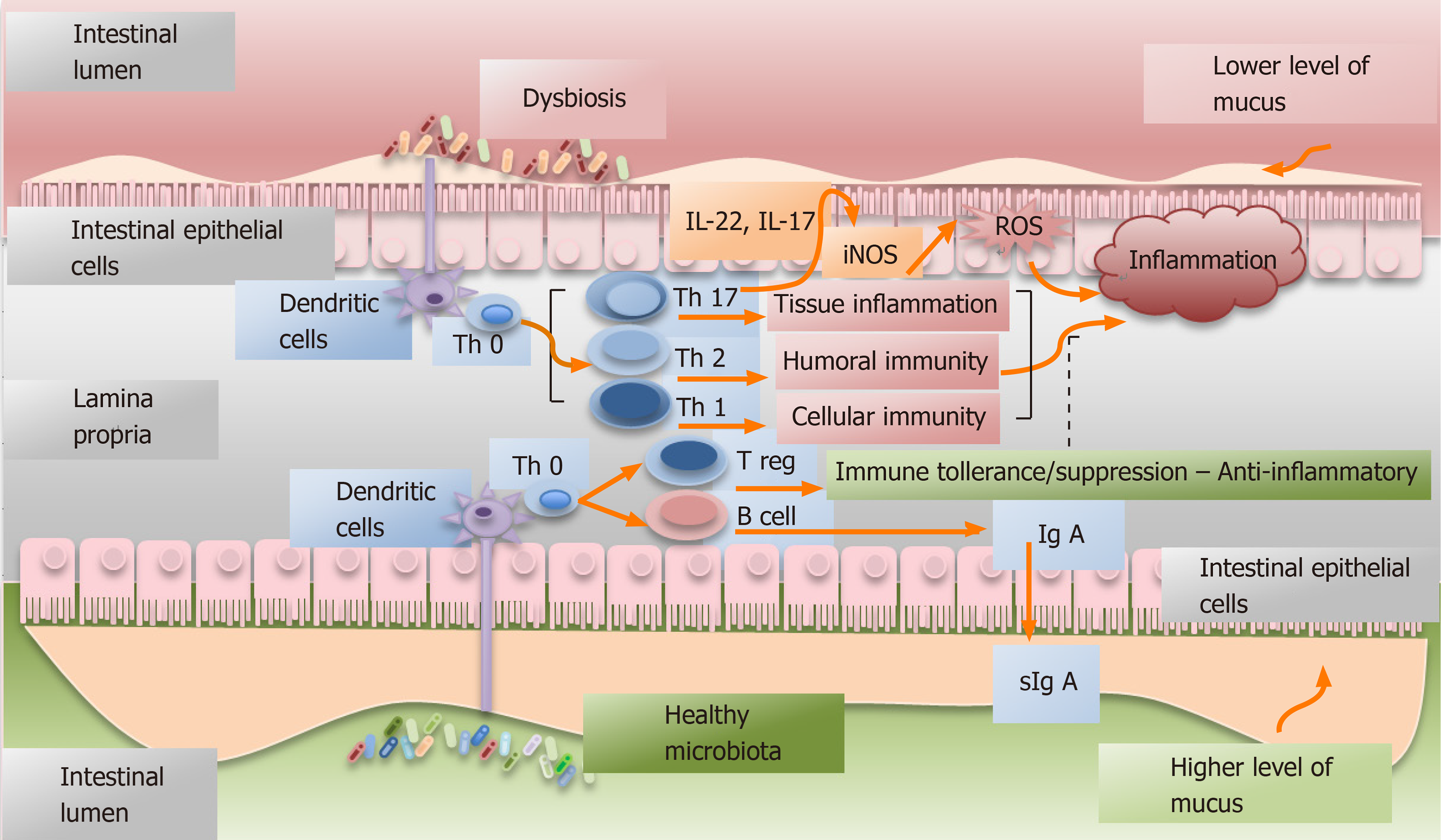Copyright
©The Author(s) 2020.
World J Gastroenterol. May 28, 2020; 26(20): 2498-2513
Published online May 28, 2020. doi: 10.3748/wjg.v26.i20.2498
Published online May 28, 2020. doi: 10.3748/wjg.v26.i20.2498
Figure 1 Simplified graphic depicting the interactions between the healthy or dysbiotic microbiota and immune system.
Dysbiosis is defined as the abnormal and predominant presence of pathogens in an environment or as alterations of the considered normal proportion of the different specimens composing the microbiota[1]. The microbiota largely contributes to the development of the lymphoid tissue[11] and it can modulate host immune system (innate and adaptive)[12]. Intestinal microbiota interacts with the immune response elements through dendritic cells. In dysbiosis, a Th17-type of immune response may be activated with consequent production of IL-17 and IL-22, both having a pro-inflammatory and pro-tumoral effect[2]. Furthermore, IL-22 can favor the expression of inducible nitric oxide synthase and the subsequently production of oxygen reactive species that are linked to cancer promotion[45].
- Citation: Bartolini I, Risaliti M, Ringressi MN, Melli F, Nannini G, Amedei A, Muiesan P, Taddei A. Role of gut microbiota-immunity axis in patients undergoing surgery for colorectal cancer: Focus on short and long-term outcomes. World J Gastroenterol 2020; 26(20): 2498-2513
- URL: https://www.wjgnet.com/1007-9327/full/v26/i20/2498.htm
- DOI: https://dx.doi.org/10.3748/wjg.v26.i20.2498









